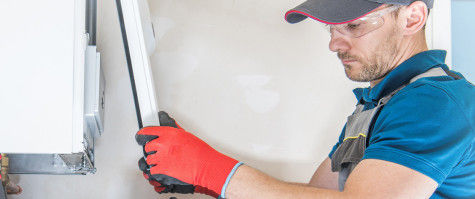Winter
Keep Energy Usage & Costs Down When Temperatures Drop
When temperatures drop during the coldest winter months, your home’s heating equipment works overtime to keep your house warm and your family safe. To control your monthly costs, it’s critical to manage your energy usage during the winter season.
Factors That Impact Winter Bills
(Hover Over Icons)
1. More Energy Usage
2. Fluctuations in Temps
3. Lifestyle Changes
4. Type of Home
Safeguard Your Home This Winter
Safety is always our number one priority.

Do you smell natural gas?
If you smell or suspect a gas leak, leave the area immediately. Once you are in a safe place, call 911 and then call our Gas Leak Hotline at (800) 947-5000.

Test Smoke & Carbon Monoxide Detectors
Routine testing is critical throughout the winter and all year long. Also check expiration dates on devices annually.
Practice Plug Safety
If you must use an extension cord, make sure it’s the right capacity for the tool or appliance with which it’s used. Use grounded (three-prong) extension cords for outdoor tools and holiday decorations.
Learn How to Lower Your DTE Energy Bills
Take our assessment to get personalized savings tips.
Visit our virtual Interactive Energy-Efficient Home for room-by-room, energy-reducing tips that can help you save all winter long.
Download the free DTE Insight App to track your energy usage and find ways to save even more.
Shop the online DTE Marketplace for instant rebates on energy-efficient products for your home, such as LED bulbs, thermostats, smart outlets and more.
Need support this winter?
Don’t wait to ask for help. The sooner you reach out, the sooner we can connect you to assistance. Learn more on our assistance page.
To view a list of warming centers around Michigan, visit our blog.
Know Your Supplier
Michigan natural gas customers have a choice when it comes to their natural gas supplier. That can affect your energy rate.
Have concerns about your winter energy bill?
If you are experiencing an issue or are dissatisfied with your service, please submit your concern and someone from our team will follow up. Once your situation is resolved, we invite you to leave a compliment for our team.
Winter
Keep Energy Usage & Costs Down When Temperatures Drop
Practical Tips for an Energy Efficient Winter
Lower Your Thermostat
You can save up to 10% a year on heating and cooling by dialing back your thermostat from its normal setting.

Layer Up
Dress in layers and use blankets to stay comfortable. Avoid using space heaters which use a lot of electricity and can drive up your energy bill.

Insulate Windows, Doors and Pipes
Keep warm air in and cold air out my using caulk or weatherstripping around doors and windows. Allow warm sunlight in south-facing windows during the day and cover them at night to reduce drafts.

Power Up with LED Lighting
LED light bulbs are more efficient, durable and last up to 15 times longer than incandescent bulbs. They also use up to 90% less energy while providing the same amount of light.

Invest in Smart Home Products
Use smart home products to monitor and analyze your home energy use. From smart lighting and thermostats, to sensors and switches, adding smart technology to your home helps you develop an energy-saving strategy to reduce your monthly bill.

Give Your Furnace a Boost
Keep your furnace working at peak efficiency by regularly changing the air filters, cleaning the vents and getting routine tune-ups. If it’s older, consider a modern high-efficiency model and save with rebates.

Manage your energy use with the DTE Insight app
Download our free DTE Insight App today. The app and its Energy Bridge add-on help you monitor and manage your home energy use in real time.

Looking for more ways to save?
At DTE, we have tips, tools, programs and resources, including personalized energy saving tips, to help you save energy and money all season long.
Shop for discounted energy efficient products at the DTE Marketplace - receive instant rebates on energy-saving products, like weather stripping, thermostats, pipe wrap and more.

Frequently Asked Heating Questions
We offer several payment assistance programs to help you pay your bill, and we’ll help find a payment plan that best suits your budget and energy needs. We also work with government agencies and community partners to find the right assistance programs for you over the long-term or in a crisis situation.
Yes. If you’re using a gas furnace for heating, the only electrical cost will be what is required to operate the fan motor and igniter. The igniter lights the flame for a moment when the furnace starts up.
That depends on how long you’ll be away. Generally, in the winter you should adjust your thermostat by about 7-10 degrees to around 55° Fahrenheit. This temperature is a good middle ground to keep your home pipes from freezing while also conserving energy.
During the summer, when nobody is home (including pets), consider raising the temperature about 5 degrees. If you normally keep it at 75°, increasing it to 80° can result in energy savings. Consider hanging solar shades or curtains to cover all windows and reduce radiant heat absorption.